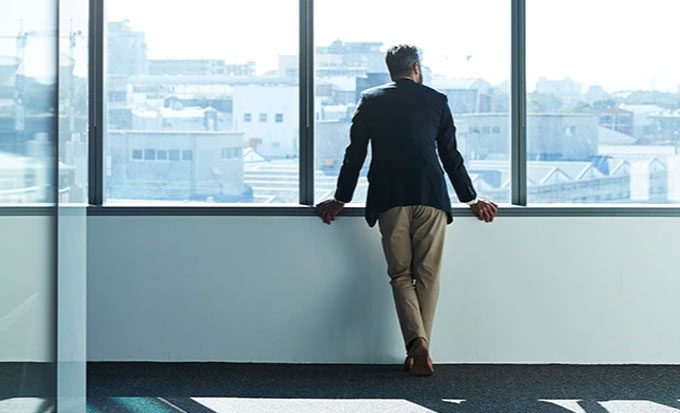Creative minds often enjoy the freedom to immerse themselves in the spiritual world.
Psychologists from the University of Arizona, University of Arkansas, and University of Minnesota in the United States surveyed over 2,000 volunteers to better understand how creativity flourishes when we have nothing better to do.
Based on brain activity test results, researchers found that individuals with the ability to think differently and creatively tend to feel less bored when alone.
While this may not be a groundbreaking discovery, it highlights the differences in our minds when in an inactive state.

Creative individuals often feel less bored when alone. (Image credit: Getty Images).
The findings also suggest better ways to encourage people to appreciate their free time without feeling the need to fill it with mundane tasks or tedious work.
The lead author of the study, neuroscientist Jessica Andrews-Hanna from the University of Arizona, stated: “Understanding why people think the way they do will help find ways to support interventions aimed at improving well-being and happiness.”
The recent global Covid-19 pandemic helped us realize that prolonged periods of solitude can actually be an opportunity for some to live joyfully and healthily. There are many ways people cope with the pressures of isolation, and some methods turn out to be beneficial.
For some, social isolation provides a valuable opportunity to frequently venture into the deeper corners of their thoughts and souls.
They fill these long stretches of time with imaginative stories, bold speculations, and tightly connecting loosely linked thoughts.
Neuroscientist Andrews-Hanna remarked: “In today’s busy society, connected through technology, time alone with one’s thoughts without distraction can be a rare commodity.”
To better understand how this manifests in reality, researchers invited 90 volunteers to sit alone in a distraction-free room for 10 continuous minutes and comfortably express whatever came to their mind.
The volunteers also underwent a thinking test, showcasing each individual’s exploratory tendencies in response to open-ended questions, such as “How would you make money with 100 rubber bands?”
Analyzing the stream of ideas as volunteers vocalized them helped researchers gain insight into the thought processes of individuals who exhibit superior thinking.
While many people jumped from one unrelated topic to another, creative individuals displayed a more cohesive line of thought.
These distinctive individuals also spoke more, reflecting a flow of ideas that was rich and abundant, and they reported feeling less bored during those solitary periods.
In a second study, the research team assessed the responses of 2,612 participants through a survey related to creativity.
The results of this study closely mirrored the findings of the first, indicating that creative individuals felt less bored during the isolation imposed by Covid-19.
Learning to harness the latent creativity within us by subjectively acknowledging our capacity for creative thought allows us to fill seemingly dead time effectively.
Andrews-Hanna suggested that as we increasingly work overtime, over-schedule, and become digitally addicted, perhaps we need those seemingly random moments of silence that actually serve to relax and enhance creativity.
This contributes to making our main daily activities more effective.


















































